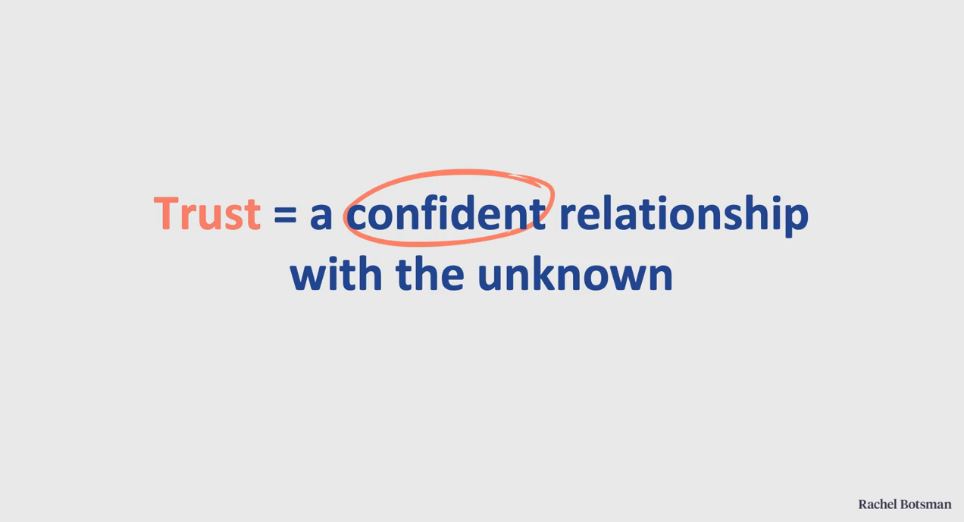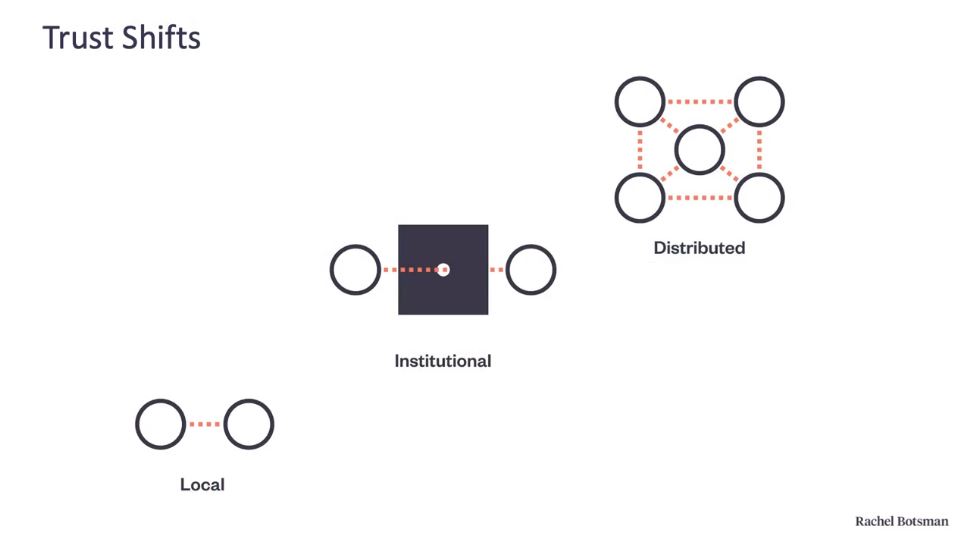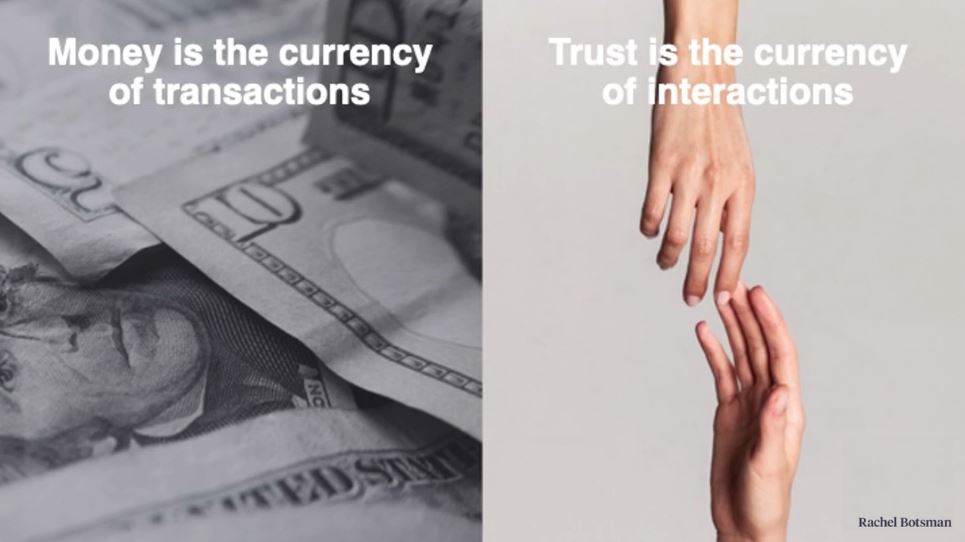The Currency of Trust
“Trust enables us to navigate uncertainty, place our faith in people and take leaps into the unknown”
Technology has changed who, what and how we trust. Yet, in our digital era, people are asked to take unprecedented risk by leaping faster and higher than ever before.
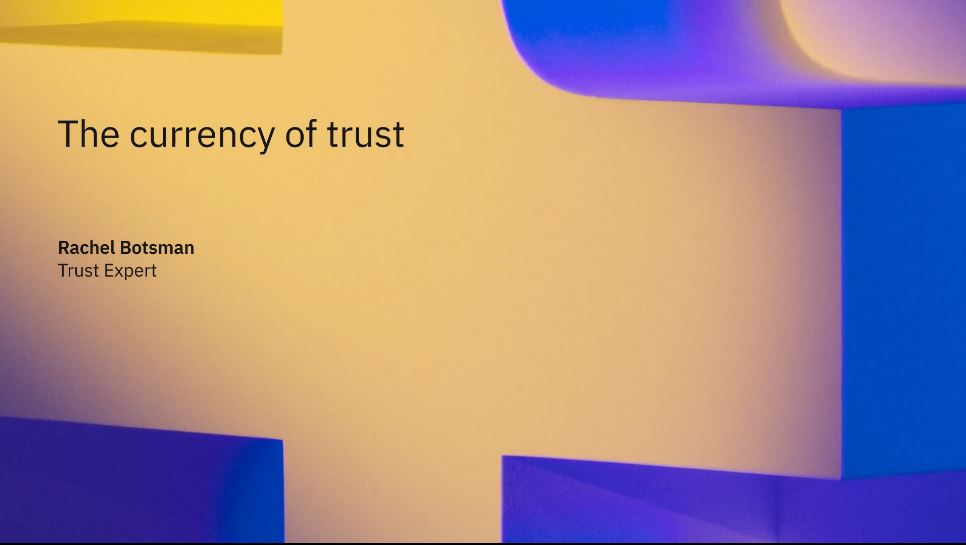
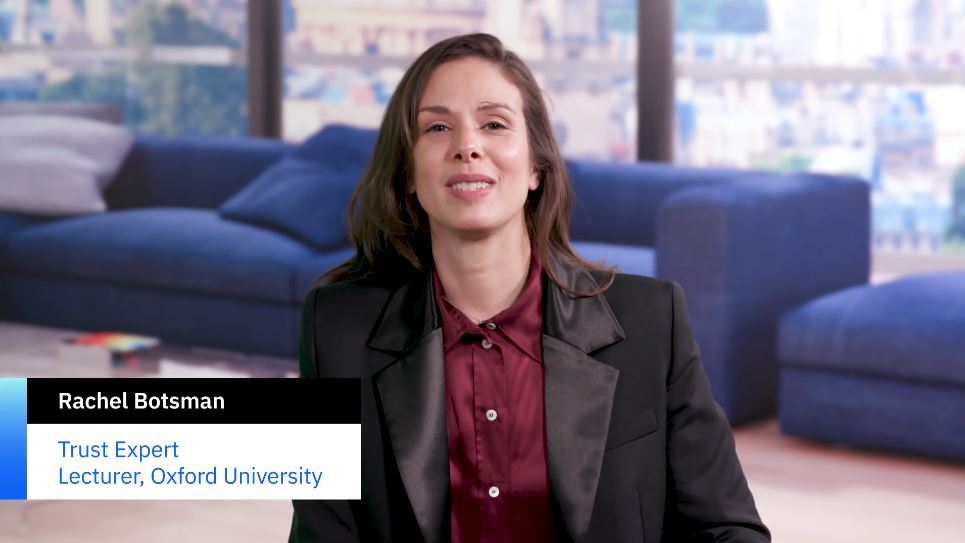
Rachel Botsman, Trust Fellow at Oxford University and the author of “Who Can You Trust?” discussed the importance and value of trust in the digital age: What trust is and the role it plays in our lives. Many product and innovation fail, not because they’re bad idea or technology but because of trust reasons.
Here, trust is defined as “confident trust with the unknown” which enable us to take risk and change our behaviors. Trust play remarkable role of being the bridge that enable us move (i.e.“leap”) from known to the unknown over uncertainties, which happen when we do something new or differently.
Some key ideas about trust discussed:
- Think about the layers of Trust: The idea, platform (technology and brand) and people behind it.
- Trust is shifting from local, institutional, and into distributed - but as distributed trust is on the rise, people become more appreciative of local trust.
- People respond differently to risk and uncertainty and they need different kind of supports, depending whether they are in low or high trust state.
- Transparency reduces the unknown so that less trust is required - but more transparency is not equal more trust. If you need things to be transparent, you’re actually in low trust state. Transparency should be seen as tool not a desired end state.
- Trust is earned through consistency of action and words not intensity. 2 ingredients for trustworthiness:
- Capability traits which made up of Competence and Reliability
- Character traits which made up of Integrity (alignment of Intention and Motives) and Empathy (more importantly Care)
- Money is the currency of transaction, Trust is the currency of interaction - it’s society’s most valuable and fragile currency.
